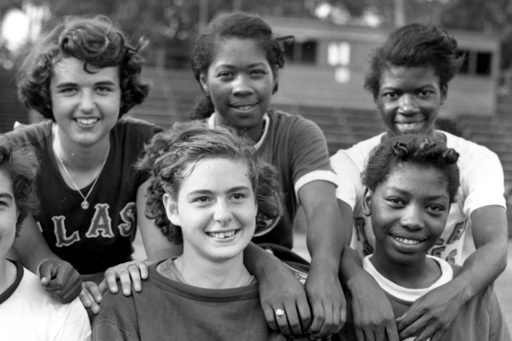
Mabel Staton, a pioneering Black athlete renowned for her achievements in track and field, passed away on Thursday at the age of 92. Staton made history as the sole woman representing the United States in long jump at the 1952 Helsinki Olympics, breaking through significant racial barriers in the process.
Originally known as Mabel Landry during her time at DePaul University in the 1950s, where a women’s track team had not yet been established, she was honored with induction into the school’s athletic Hall of Fame in 2011. The notification of her passing, which resulted from a prolonged battle with cancer, was communicated by her daughter to the senior associate athletic director, Thad Dohrn.
Leading up to the Helsinki Games, Staton emerged as the only American woman to fulfill the Olympic qualifying standard. She finished in seventh place during the event, achieving her best jump at 5.88 meters (19 feet, 3 1/2 inches) during qualifying, briefly earning her the title of Olympic record holder before New Zealand’s Yvette Williams surpassed that mark with a jump of 6.16 meters (20 feet, 2 1/2 inches) later in the same round.
Reflecting on her Olympic experience, Staton emphasized in a prior interview with CBS News Philadelphia that her participation was not solely about victory, but rather about the honor of competing.
Raised on the South Side of Chicago, Staton’s early athletic journey began with the Catholic Youth Organization (CYO). A notable incident during her teenage years involved her coach securing a private sleeping compartment for a train ride to Texas, where she would compete in her first national AAU meet. However, upon crossing the Mason-Dixon Line, a conductor insisted that she vacate her compartment and join other Black passengers—a moment that underscored the racial injustices of the time.
In response, the CYO took legal action against the Illinois Central Railroad, winning the civil rights case, which provided funds to create what was believed to be the first interracial track team in the Midwest.
“Living in the era of segregation wasn’t a bed of roses. What helped me was my faith and the support of family, coaches, and teammates,” Staton recounted in a piece on the DePaul website.
Over her illustrious career, Staton claimed four national long jump titles and played a pivotal role in the United States’ success at the 1955 Pan American Games by anchoring the winning 4×100-meter relay team.

